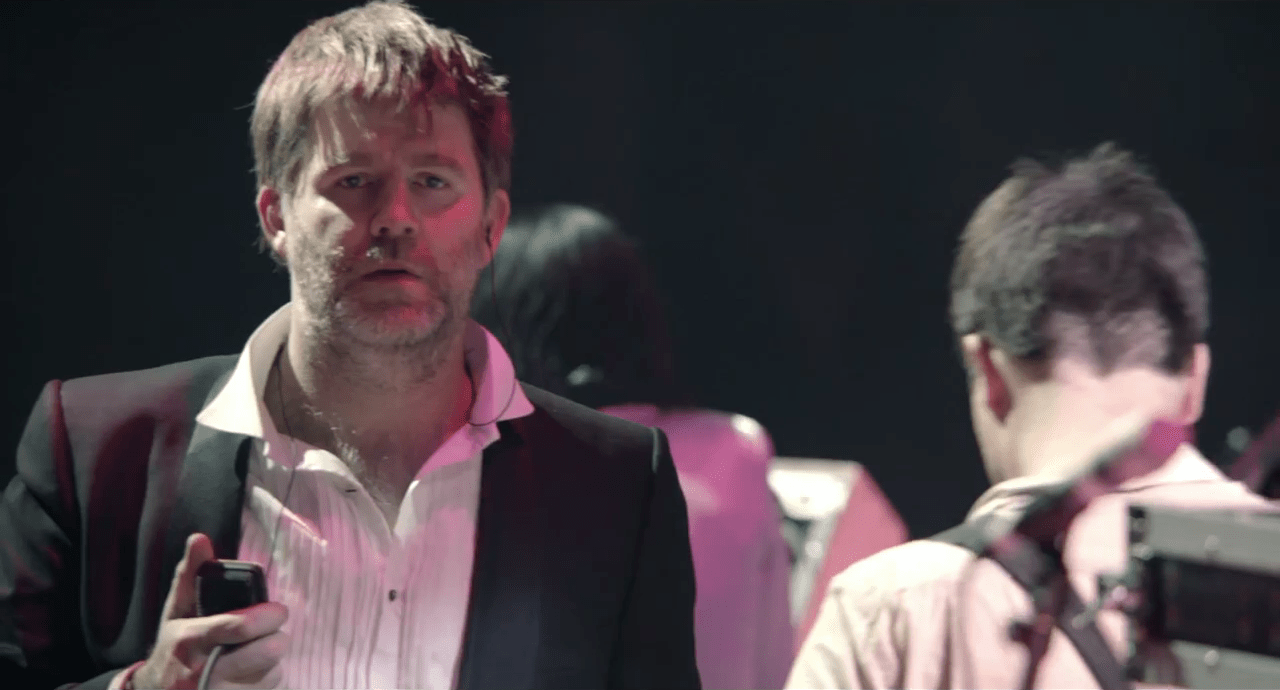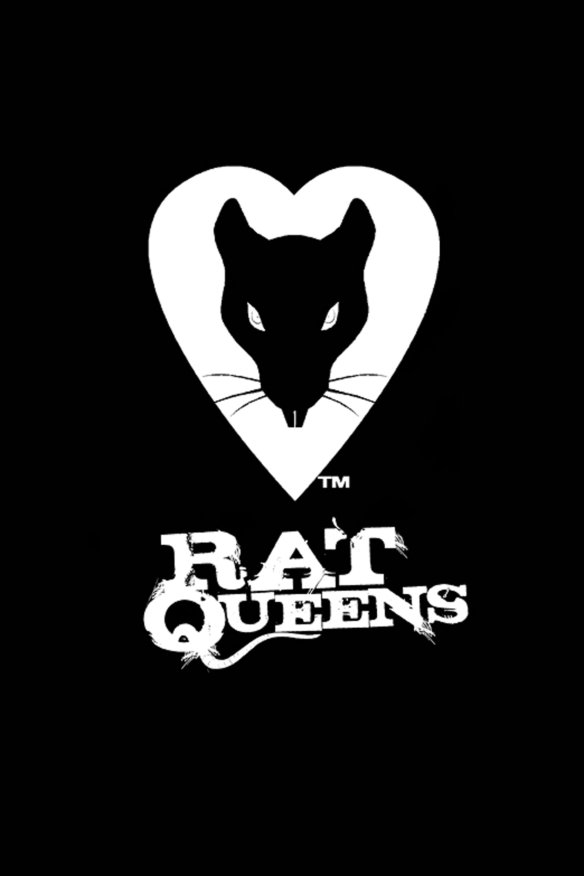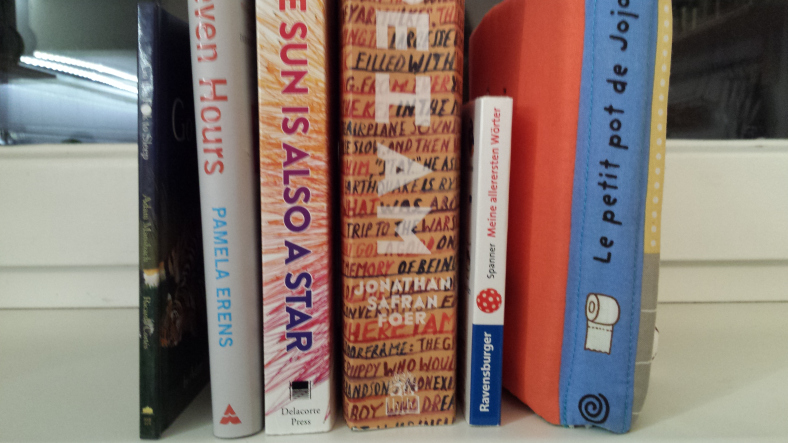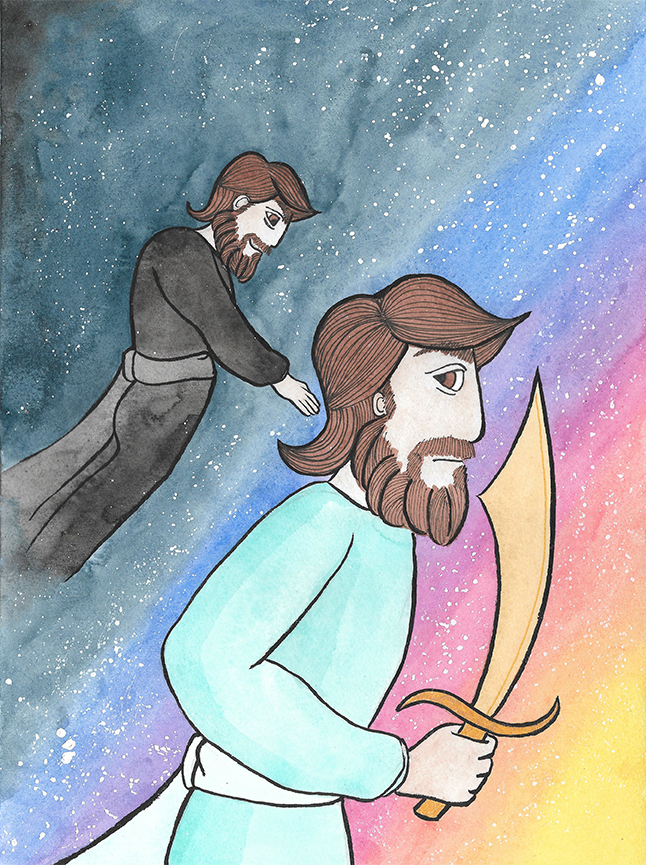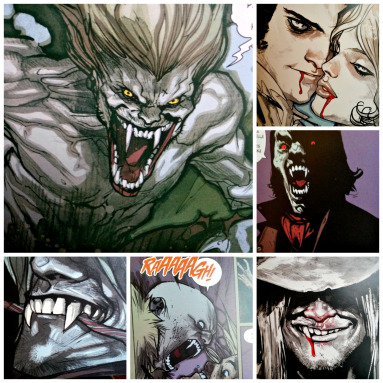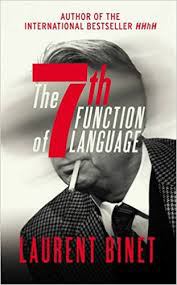
“Life is not a novel. Or at least you would like to believe so.”
How good is this tornado of a novel? The plot is wildly ambitious, an intellectual version of the da Vinci Code, and mixing real-life characters with fictional ones is controversial. But it is a hugely brilliant swirl through multi layers of plot, character deceit, sex, intrigue, violence. The writing for a start, even in translation, is sometimes achingly beautiful.. “Crumb is famous for for the way he drew women, with their big, powerful thighs, their lumberjack shoulders, their breasts like mortar shells and their mares’ arses.” The structure of story telling is fresh, surprising, novel and alive.
Essentially it is a book about the philosophy of language. Almost overshadowing it is Paris of the 1980s described in forensic detail, not just the architecture but the dinner parties, the gay clubs, the snobby academics, the shadowy politics, the rough edges of class politics. And yet how piquant of our own (UK) politics is this line: “If the dominant class has lost its consent, in other words if it no longer directs but merely dominates…”
There is (at least one) astonishing sex – I might have liked to have known more of some the fabulous women he describes but then he assigns them off stage to decorative retirement after starring vignettes. And there is in part shocking, unexpected violence, but it is a grown up, intellectual book about ideas which also insinuate in subtle ways. The cars are always in semiotic code R5, 2C or 504. One of Simon’s girlfriends speaks in Italian, albeit just little trackable observations rather anything off-puttingly incomprehensible. We are in the world of words. Simon at one point even wonders if he is not in the novel, which of course he is, which is the point. The real fictional characters sometimes have to get an epithet to denote that they are a fiction, not real people. “For Little Red Riding Hood, the real world is the one where wolves speak”.
So carefully are some of these characters sculpted that when we finally get to meet, presidential candidate Francois Mitterand he does actually speak like a brilliantly cunning statesman. Others are caricatures, Jean Paul Sartre smoking, Jane Birkin flipping across a party floor. And some of the central characters were equally obsessed – Umberto Eco wrote a tome called Foucault’s Pendulum – we will meet both as we go. The imagery is also grounded in great reading and is delivered with panache, maybe even a smirk or more. The core unlikely relationship between academic professor Simon and his gruff, bumbling detective partner also moves agreeably with the overall romp of events. Overall it is grand satire.
I am tempted to read the original French version. This is a very French book, with Gallic presumptions, especially about language. Having done translations from the French, you are aware that French vocabulary is much smaller than English. It is a social code to be used in certain ways, and you might equally say the same about Italian, both of which suit these high faluting academic arguments. But English has much greater vocabulary so the balance is different, the sense of being able to articulate is that much more developed and therefore precise. There is usually a word for anything, where in French or Italian they may need a whole phrase or paragraph to overcome the lack of words. Enter the French masters of bombast. Sam Taylor’s translation is masterful on the linguistics – because yes they do come over as really interesting, the ultimate science in one thesis – but I tripped on a couple of food bits, they order a bacon sandwich when surely in Paris it would be jambon or ham, they order a bottle of chardonnay where surely a Frenchman would order burgundy, but in other areas he may, quite deliberately I suspect, have you stretching for your dictionary. Hard work but great fun.
Advertisements Share this: